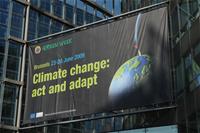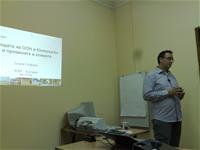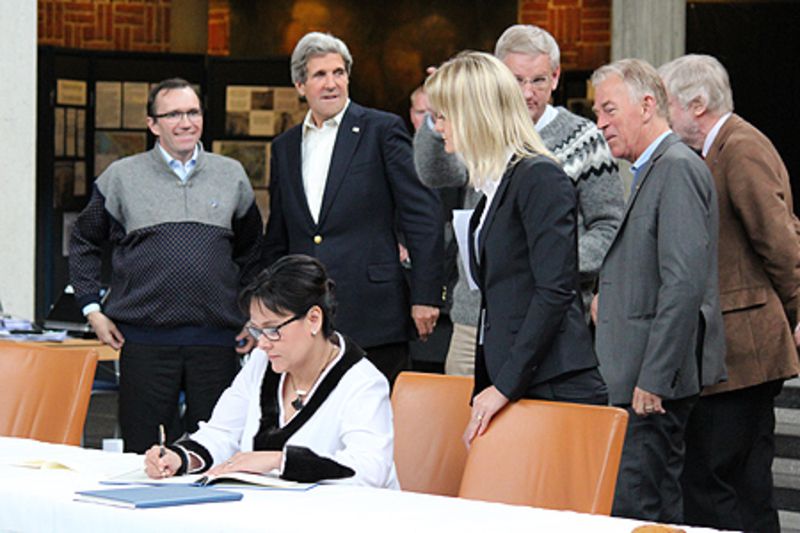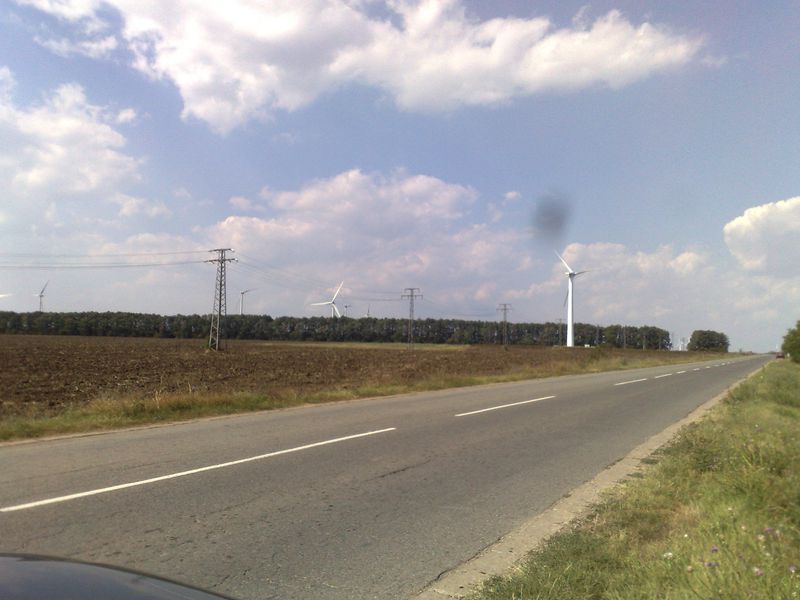The National Allocation Plan is finally ready
Adelina Marini, October 28, 2009
 The Bulgarian Ministry of environment and waters has already sent the reworked National Plan for Carbon Emissions Trade (National Allocation Plan)) for coordination among other ministries and when this procedure is over, the plan will be sent to the Council of Ministers for approval. This plan will allow our country to trade with carbon quotas within the EU, according to the European Scheme for Carbon trade. The initial version of the plan was prepared in March 2007 but was returned for rework by the Commission. 2 years later after the country has been under threat of sanctions by the Commission, the new leadership of the Ministry managed to rework it quickly and send it for coordination.
The Bulgarian Ministry of environment and waters has already sent the reworked National Plan for Carbon Emissions Trade (National Allocation Plan)) for coordination among other ministries and when this procedure is over, the plan will be sent to the Council of Ministers for approval. This plan will allow our country to trade with carbon quotas within the EU, according to the European Scheme for Carbon trade. The initial version of the plan was prepared in March 2007 but was returned for rework by the Commission. 2 years later after the country has been under threat of sanctions by the Commission, the new leadership of the Ministry managed to rework it quickly and send it for coordination.
According the plan the government distributes a little over 42 mn quotas of CO2 emissions per year. The quotas were defined by the Commission in the end of 2007 and 2008 and refer to the period of 2008-2013. This is the period of the Kyoto Protocol. Beside these quotas, there is an additional reserve of 25 mn quotas for the inclusion of new manufacturers for the period 2009-2012. Some 1 mn quotas have already been allocated.
According to Georgi Stefanov from the international environment protection organisation WWF  those are definitely good news, compared to the inaction of the previous government, but still more is needed. The efforts of the new government of the prime minister Boyko Borisov, Mr. Stefanov said. should be directed to renewable energy sources (RES) as well as toward resistance against the hydro energy lobbies for the construction of 2 new dam lakes at the river Danube as well as for the water cascade Gorna Arda.
those are definitely good news, compared to the inaction of the previous government, but still more is needed. The efforts of the new government of the prime minister Boyko Borisov, Mr. Stefanov said. should be directed to renewable energy sources (RES) as well as toward resistance against the hydro energy lobbies for the construction of 2 new dam lakes at the river Danube as well as for the water cascade Gorna Arda.
He reminded that hydro energy projects have for a long time been excluded from the international criteria for RES. Those are projects that bring more harm to the environment than having benefits. The efforts of the cabinet must be directed also to the development of wind parks and solar farms. The maximal capacity for electricity in Bulgaria is estimated to be between 12 and 13,000 MW and for now the consumption varies between 5-7,000 MW. Given that there are investment plans for 11,000 MW, filed in the Ministry of the economy, energy and tourism, this would mean that if we give up all the current energy sources we could quite easily replace them with RES.
And the global emissions trade, not only within the EU, could seriously contribute to the financing of such a transition to law carbon economy. Beside the purely economic reasons, Georgi Stefanov quoted Bulgarian scientists who have found out that the snow fall in Bulgaria has dropped by 40% because of the warming of climate, the quantity of rain has also dropped significantly by 30% and the temperature in the cities has risen by between 1.2 and 2.5 degrees for the last 18-20 years.
These data is disturbing enough so as to provoke immediate actions, the WWF called. At the moment the global temperature has risen with almost 1 degree - 0.9 degrees. The efforts of the international community are global warming to be restricted to 2 degrees by 2050. Generally, there are no objections to this target. However, the differences between the countries are how to finance the efforts for climate change.
The common global target is 2020, which is the mid-term commitment pledged in the draft agreement for Copenhagen, to reach the levels of carbon emissions in 1990. The developing countries will be given a little advantage by allowing them the peak of their emissions to be in 2017 but afterwords they will have to start reductions. The final goal is the quantity of 36.1 bn tonnes which is the 1990 level to be reduced by 2025 to 7.2 bn tonnes or by 80%.
There is no argument on this issue either but on a national level in many countries there is serious resistance to any measures because the closure of high carbon factories will lead to job losses and the business is afraid of too high prices of their production if they start investing in law carbon technologies. To those concerns the WWF responds by saying that the commitment of the developed countries is by 2013 to spend $150 bn to finance climate change.
Given the enormous financial resources that have been found and poured in the global economies to reduce the impact of the global financial crisis, $150 bn should not be a problem. Furthermore, if we know that a probable raise of global temperature by 4 degrees will lead to the death of almost 90% of the the live forms on Earth, including man.
 Or, as Senator John Kerry, a democrat and a co-author of the new climate change bill now being discussed by the Senate, "For 30 cents a day, we will put America in control of our own energy future and take a stand for home-grown American energy rather than foreign oil from countries who don't like us. For 30 cents a day, we will protect our kids from dangerous pollution". The American Environment Protection Agency has calculated that the price of the new bill for climate change will cost each US household 30 cents a day.
Or, as Senator John Kerry, a democrat and a co-author of the new climate change bill now being discussed by the Senate, "For 30 cents a day, we will put America in control of our own energy future and take a stand for home-grown American energy rather than foreign oil from countries who don't like us. For 30 cents a day, we will protect our kids from dangerous pollution". The American Environment Protection Agency has calculated that the price of the new bill for climate change will cost each US household 30 cents a day.
And in response to the fears of the business and the trade unions for job losses because of the transition to law carbon economy, the ecological group PEW has estimated that from 1998 to 2007 "clean energy" jobs grew at a national rate of 9.1 percent, compared with a traditional job growth rate of 3.7 percent which is a serious increase. And according to the Center for American Progress and the University of Massachusetts a $150 billion annual public and private investment in clean energy would produce a net increase every year of 1.7 million jobs.
 | © Government of Sweden
| © Government of Sweden | © КРИБ
| © КРИБ | © euinside
| © euinside